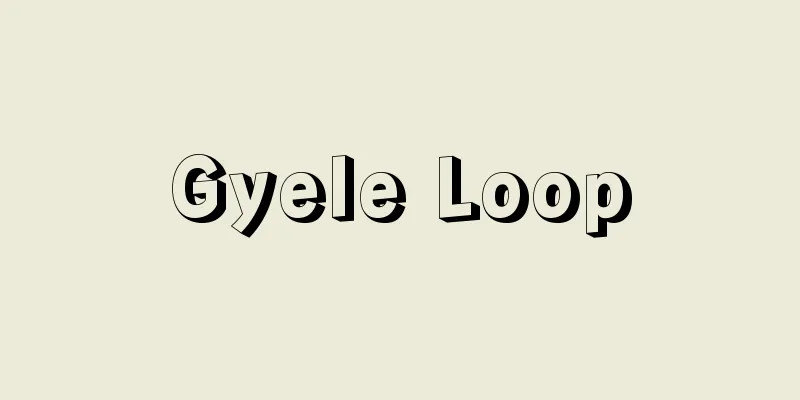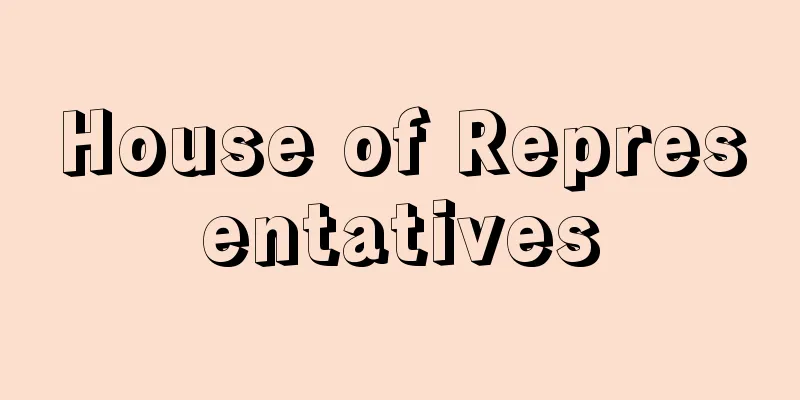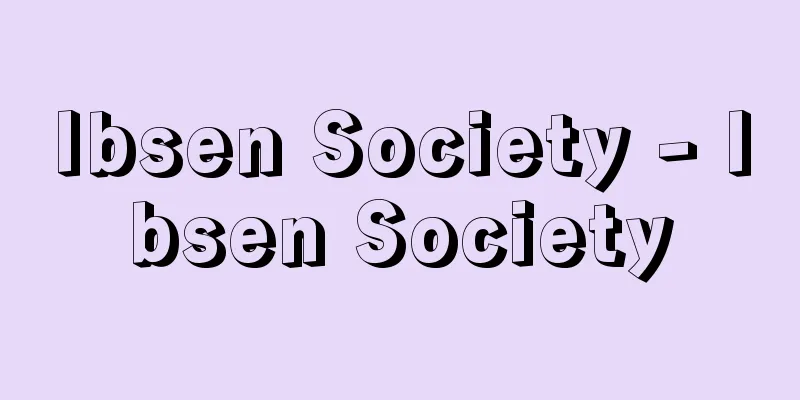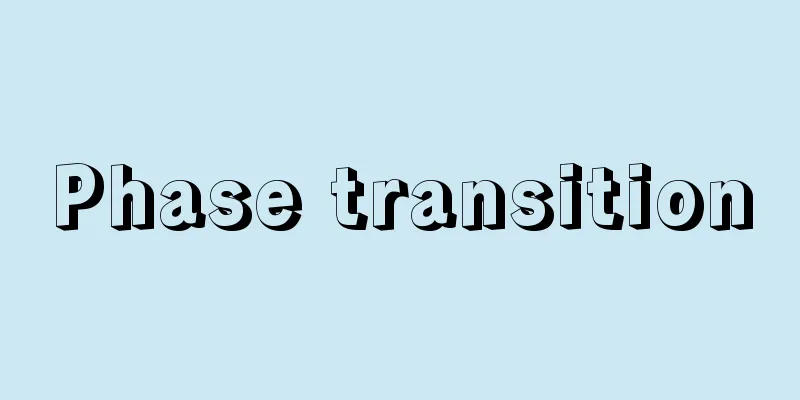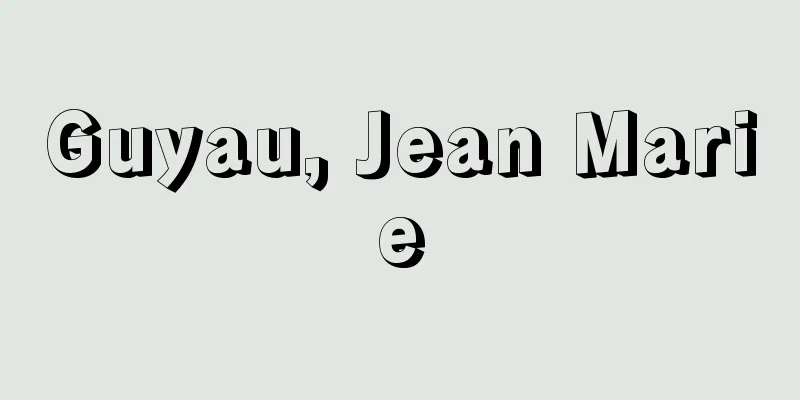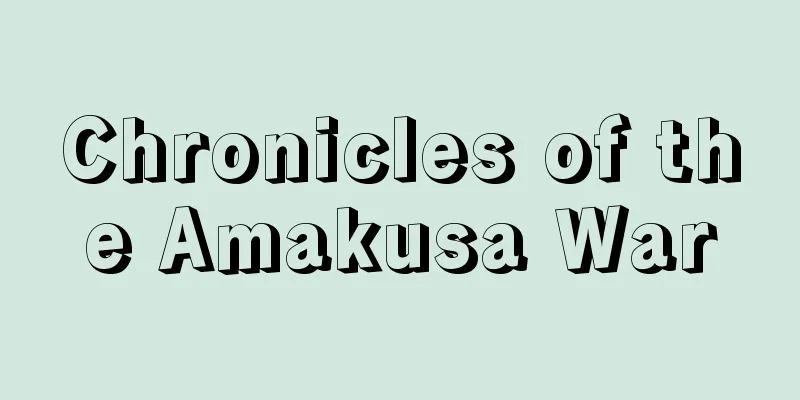Immunotherapy - Men'ekiryoho (English spelling) Immune therapy/Immunotherapy
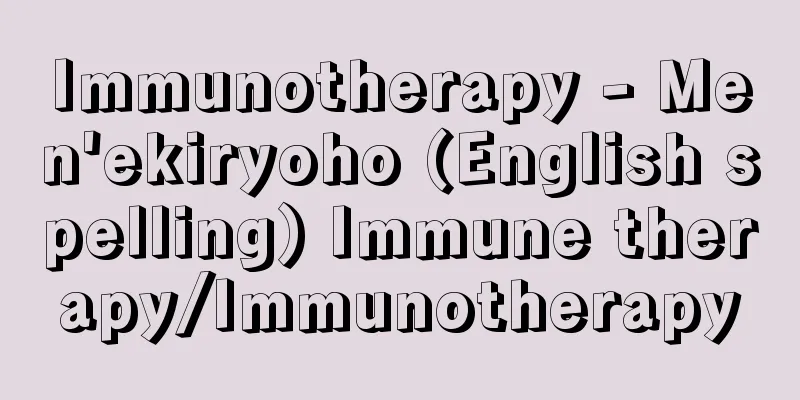
|
In a broad sense, immunotherapy is a general term for any treatment that utilizes the immune system to protect the body by eliminating foreign substances that invade the body, such as bacteria, viruses, and cancer cells. It aims to cure diseases and alleviate symptoms by inducing or enhancing immune responses or suppressing immune decline. In a broad sense, immunotherapy also includes vaccinations, desensitization therapy for allergies, and immunosuppressants and immune tolerance therapy for organ transplants and autoimmune diseases. In addition, various other treatments that utilize immune responses are often broadly referred to as immunotherapy, regardless of whether their effectiveness has been clinically confirmed. In a narrow sense, it refers to a treatment that strengthens the body's immune system against cancer cells and maintains the activity of the immune system, and is also called cancer immunotherapy. It is expected to be a fourth option after surgery, chemotherapy, and radiation therapy, and research is progressing. Currently, immunotherapies that have been shown to be effective in clinical trials can be broadly divided into three types: "cytokine therapy," which activates immune cells in the body; "immune checkpoint inhibitors," which act on the mechanism by which cancer cells suppress the activity of immune cells in the body; and others. The therapeutic effects of these therapies include extending survival time or alleviating symptoms, and improving quality of life (QOL), but no cures have been confirmed. The types of cancer that can be effectively treated are also currently limited. Currently, the treatments approved in Japan and described in clinical guidelines are mainly drug treatments using "immune checkpoint inhibitors," a representative example of which is Opdivo, which is classified as a PD-1 inhibitor. PD-1 is a type of protein that was discovered by Professor Honjo Tasuku of Kyoto University School of Medicine (currently Distinguished Professor) and others. It was later revealed that PD-1 is a molecule called an immune checkpoint on the surface of T cells, a type of lymphocyte, and that when it binds to another protein on the surface of cancer cells, it reduces the activity of T cells and brakes the immune system. Furthermore, Yoshiko Iwai (Professor at Nippon Medical School), a graduate student in Honjo Tasuku's laboratory, discovered that by blocking the binding of PD-1 to proteins on the surface of cancer cells with an antibody protein, the immune system's brakes are released and the attack on cancer cells is increased. This antibody protein led to the immune checkpoint inhibitor "Opdivo," and for this series of achievements, Honjo Tasuku was awarded the Nobel Prize in Physiology or Medicine in 2018. James Allison (Executive Director of MD Anderson Cancer Center at the University of Texas, USA), who also received the same award with Honjo Tasuku, researched another immune checkpoint molecule, "CTLA-4," and developed the cancer treatment drug "Yervoy" from its inhibitor. Opdivo is more effective against many types of cancer than Yervoy, and even greater effectiveness can be achieved by combining Opdivo with Yervoy. On the other hand, immune checkpoint inhibitors have side effects such as myasthenia gravis and fulminant type 1 diabetes, which are rare with conventional anticancer drugs. It is not clear what side effects may occur for cancer immunotherapy drugs that are approved in Japan but not listed in the treatment guidelines, or for new types of cancer that have been approved for use. It is becoming clear that the effectiveness of immune checkpoint inhibitors varies depending on the genes possessed by the patient, and currently, methods are being developed to evaluate the effectiveness of treatment by examining genes in advance. (Natsuko Kasai, Freelance Writer/2018) Source : "Chiezo" published by Asahi Shimbun Publications Co., Ltd. About Chiezo |
|
広義には、体内に侵入した細菌やウイルス、がん細胞などの異物を排除して体を守る免疫を利用した治療法を総称して免疫療法という。免疫の反応を誘導または増強したり、免疫の低下を抑制したりすることで、疾病の治癒や症状の軽減をはかる。ワクチン接種、アレルギーに対する減感作療法、臓器移植や自己免疫疾患に対する免疫抑制剤や免疫寛容療法も広義には免疫療法に含まれる。その他、免疫の反応を利用した様々な治療法が、その有効性の臨床的な確認によらず、広く免疫療法と呼ばれることも多い。 狭義には、主にがん細胞に対して体内の免疫を強める方法、及び体内の免疫の活性を持続する方法による治療を指し、がん免疫療法ともいう。外科治療、化学療法、放射線治療に続く第4の選択肢として期待され、研究が進んでいる。 現在、臨床において効果が認められている免疫療法は、体内の免疫細胞を活性化する「サイトカイン療法」、がん細胞が体内の免疫細胞の活性を抑制する仕組みに働きかける「免疫チェックポイント阻害剤」、その他の大きく3種類に分けられる。治療効果としては、生存期間の延長または症状の緩和、生活の質(QOL クオリティ・オブ・ライフ)の改善が認められており、治癒が確認されたものはない。治療効果があるがんの種類も現在のところ限られている。 現在、日本国内で承認され診療ガイドラインに記載されている治療法は、「免疫チェックポイント阻害剤」による薬剤治療が中心で、代表的なものにPD-1阻害剤に分類されるオプジーボがある。 PD-1はタンパク質の一種で、本庶佑・京都大学医学部教授(現・特別教授)らが発見した。その後、PD-1はリンパ球の1種であるT細胞表面にある免疫チェックポイントと呼ばれる分子であり、がん細胞の表面などにある別のタンパク質と結合すると、T細胞の活性が低下し、免疫の作用にブレーキがかかることが明らかになった。更に、本庶佑の研究室の大学院生だった岩井佳子(日本医科大教授)が、PD-1とがん細胞表面のタンパク質の結合を抗体タンパク質で阻害することで免疫のブレーキが外れ、がん細胞への攻撃力を高められることを発見した。この抗体タンパク質が、免疫チェックポイント阻害剤「オプジーボ」につながり、一連の功績によって本庶佑は2018年ノーベル医学生理学賞を受賞した。また、本庶佑と共に同賞を受賞したジェームズ・アリソン(米テキサス大MDアンダーソンがんセンター執行役員)は、別の免疫チェックポイント分子「CTLA-4」を研究し、その阻害剤からがん治療薬「ヤーボイ」が開発された。 オプジーボはヤーボイよりも効果が認められるがんの種類が多く、オプジーボにヤーボイなどを併用することによって更に高い効果が得られることもある。反面、免疫チェックポイント阻害剤には従来の抗がん剤ではあまり例のない重症筋無力症や劇症1型糖尿病といった副作用がある。国内で承認されていても診療ガイドラインには掲載されていないがん免疫療法薬剤や、新たに使用対象として認められたがんの種類に関しては、どのような副作用が起きるか明らかになっていない。免疫チェックポイント阻害剤の効果は患者のもつ遺伝子によって差があることが明らかになりつつあり、現在、事前に遺伝子を調べて治療効果を評価する手法の開発などが進められている。 (葛西奈津子 フリーランスライター/2018年) 出典 (株)朝日新聞出版発行「知恵蔵」知恵蔵について 情報 |
<<: Cotton Fabric - Menorimono
>>: Immunosuppressants - Menekiyokuseizai
Recommend
gravity dam
...We will discuss these and fill dams in a littl...
Danzo - Danzo
A statue made from sandalwood, a type of fragrant...
Olympic flag - Olympicki (English spelling) Olympic flag
During the Olympic Games, this flag is hoisted on ...
Alain Robbe‐Grillet
1922‐ French author. Born in Brest. After graduati...
Poligār (English spelling)
...Especially in the second half of the 16th cent...
George I - George
King of England (reigned 1714-1727). Son of Ernst ...
Electrofax
Electrophotography was announced by the American c...
Wax palm (English spelling) carnauba
A tall tree of the palm family famous for producin...
Toya [village] - Toya
A village in Abuta County, Iburi Subprefecture, so...
Burning at the stake
A method of execution used in Babylonia and ancien...
Freshwater algae - Tansui-sou
A term for seaweed. In addition to algae that gro...
whiskey
A distilled alcoholic drink with a high alcohol co...
Achilles Corporation
A comprehensive chemical products manufacturer. It...
Stand-by credit
Today, the term is widely used in two senses in in...
Felipe IV
1605‐65 King of Spain. Reigned 1621-65. From the b...
